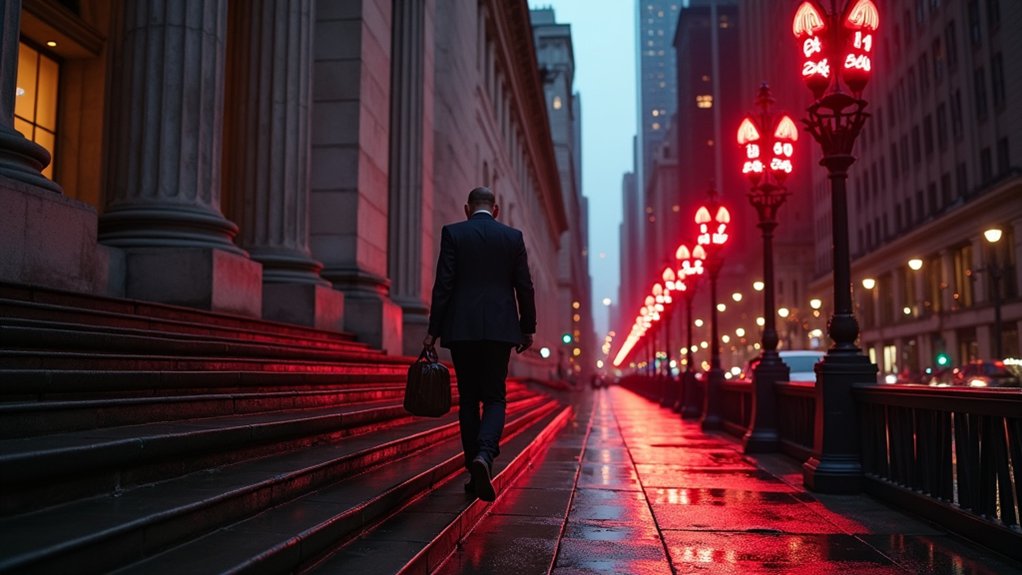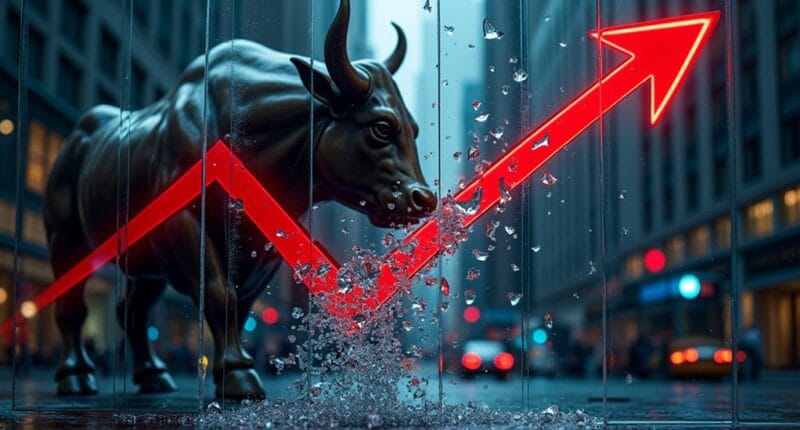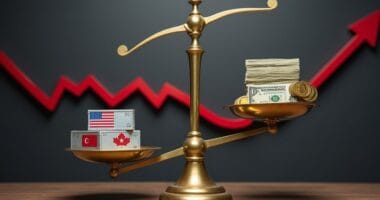When Wall Street tanks, it’s not just rich investors feeling the pain. Market crashes trigger a brutal domino effect throughout the economy: retirement accounts shrivel, companies freeze hiring, and consumers clutch their wallets tighter. The Federal Reserve’s attempts to patch things up with interest rate cuts often fall short. History shows these downturns can reshape investment behavior and corporate strategies for years. The real trouble may be just beginning.

When Wall Street takes a nosedive, the entire U.S. economy feels the punch. The ripple effects spread like wildfire, turning that initial market tumble into a full-blown economic headache. High-frequency trading doesn’t help – those algorithmic traders just pour gasoline on an already blazing fire during sharp sell-offs.
Market crashes hit like economic tsunamis, with algorithmic trading amplifying the chaos as it ripples through the entire financial system.
The damage goes way beyond just numbers on a screen. American households watch their retirement accounts shrink, and suddenly that new car purchase doesn’t seem so smart anymore. Consumer spending, which drives a whopping 70% of U.S. GDP, takes a hit. Funny how people get nervous about shopping when their investment portfolio looks like a horror show.
Corporate America doesn’t escape unscathed either. Companies see their stock values plummet, making it harder to raise capital or expand operations. Queue the predictable corporate response: cost-cutting, layoffs, and scaled-back innovation. Those ambitious expansion plans? Yeah, they’re gathering dust now.
The Federal Reserve usually jumps in like a nervous parent, ready with interest rate cuts and other monetary band-aids. But here’s the kicker – these market dives often signal something bigger brewing: recession. Historical data doesn’t lie, and prolonged market downturns have a nasty habit of preceding economic slumps.
Global markets catch our cold too. When U.S. markets sneeze, international exchanges start reaching for tissues. Foreign investors get skittish, pulling their capital faster than free donuts disappear from the break room. Trade tensions bubble up, and suddenly everyone’s arguing about exchange rates.
The long-term picture isn’t exactly sunshine and rainbows either. Market crashes change investor behavior, often permanently. Risk appetite shrinks, IPO activity dries up, and those bold investment strategies of yesterday start looking like terrible ideas.
Meanwhile, pension funds and retirement accounts take hits that could take years to recover from. It’s a sobering reminder that Wall Street’s troubles aren’t just rich people’s problems – they’re everybody’s problems. Experts recommend maintaining diverse investment portfolios to help weather these market storms and protect retirement savings.





